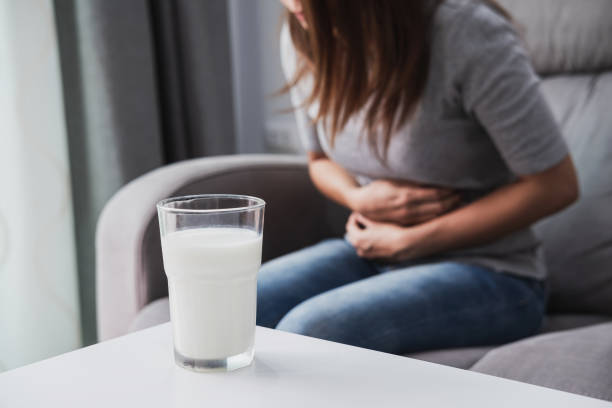

Everything You Need to Know About Lactose Intolerance
For many of us, dairy products have been an integral part of our diets since childhood. However, there are instances when consuming these delicious treats can lead to discomfort and digestive issues. Lactose intolerance is a common condition that affects people of all ages, but it is especially common in women. In India, it is estimated that up to 60% of women are lactose intolerant.
Lactose is a sugar found in milk and dairy products. When people with lactose intolerance eat or drink dairy products, their bodies cannot digest the lactose properly. This can lead to a variety of symptoms, including bloating, gas, diarrhoea, and stomach cramps.
Symptoms of Lactose Intolerance
If you have lactose intolerance, you might experience a range of symptoms after consuming dairy products, which include:
- Bloating: Feeling excessively full or bloated after consuming milk-based products.
- Abdominal Pain: Experiencing cramps and abdominal pain.
- Diarrhoea: Frequent loose stools or diarrhea.
- Gas: Excessive gas production, leading to flatulence.
- Nausea: Feeling queasy or nauseated after consuming dairy.
It's essential to remember that these symptoms can vary in severity from person to person and may occur immediately or a few hours after consuming lactose-containing foods.
Causes of Lactose Intolerance
Lactose intolerance can be attributed to various factors, such as:
- Genetics: Certain ethnic groups, including Indians, are more susceptible to lactose intolerance due to their genetic makeup.
- Age: As we grow older, our body's ability to produce lactase may decrease, leading to lactose intolerance developing in adulthood.
- Gastrointestinal Conditions: Infections, injuries, or diseases affecting the digestive system can temporarily or permanently reduce lactase production.
How Is Lactose Intolerance Diagnosed?
There are a few ways to diagnose lactose intolerance. One is to do a blood test. This test measures the level of lactase in your blood. Another way to diagnose lactose intolerance is to do a lactose tolerance test. This test measures how your body reacts to lactose after you eat or drink it.
Managing Lactose Intolerance
While lactose intolerance cannot be cured, it can be effectively managed through dietary and lifestyle changes:
- Lactose-Free Alternatives: Opt for lactose-free milk, cheese, yogurt, and other dairy products that are now widely available in grocery stores.
- Dairy Substitutes: Explore plant-based alternatives like almond milk, soy milk, coconut milk, and cashew cheese.
- Gradual Introduction: Some individuals can tolerate small amounts of lactose, so gradually reintroduce dairy into your diet to determine your tolerance levels.
- Lactase Supplements: Over-the-counter lactase enzyme supplements can help digest lactose effectively when taken before consuming dairy.
- Reading Labels: Pay attention to food labels, as lactose might be present in unexpected products such as certain baked goods, processed foods, and medications.
Lactose Intolerance and Indian Cooking
Indian cooking is a delicious and nutritious cuisine, but it can be challenging for people with lactose intolerance. Many traditional Indian dishes are made with dairy products, such as yogurt, paneer, and milk.
However, there are a number of ways to enjoy Indian food even if you are lactose intolerant. Here are a few tips:
- Choose lactose-free dairy products: There are a number of lactose-free dairy products available on the market. These products can be used in place of regular dairy products in many Indian dishes.
- Use non-dairy alternatives: There are a number of non-dairy alternatives available, such as soy milk, almond milk, and rice milk. These alternatives can be used in place of dairy products in many Indian dishes.
- Be creative: There are a number of ways to make Indian dishes without dairy products. Get creative and experiment with different flavors and ingredients.
With a little planning, you can still enjoy all the deliciousness of Indian cooking even if you are lactose intolerant.
Conclusion
If you're an Indian woman, understanding lactose intolerance is crucial for maintaining your digestive health. While it may seem challenging at first, managing lactose intolerance becomes more manageable with time and awareness of suitable dietary choices. By making informed decisions and opting for lactose-free alternatives, you can continue to enjoy a balanced and satisfying diet while keeping digestive discomfort at bay. Remember, it's essential to listen to your body and consult a healthcare professional if you have concerns about your digestive health.
